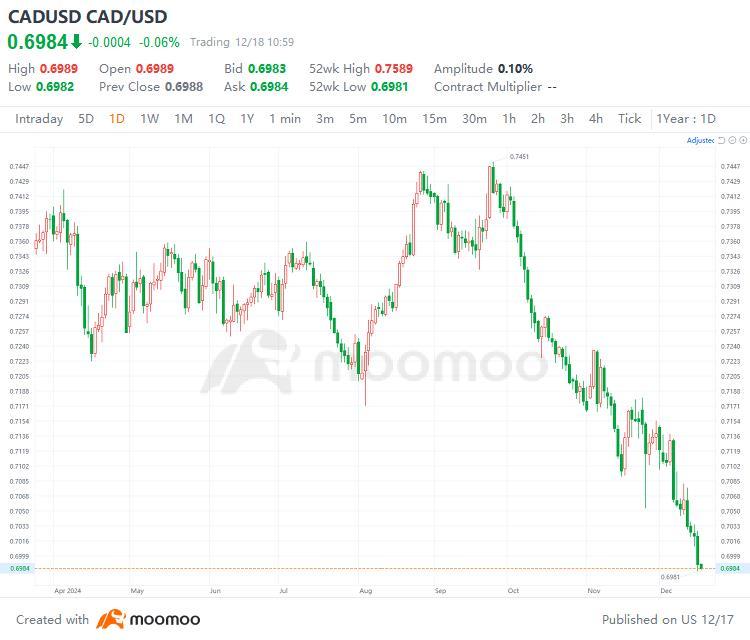TSLA
Tesla
-- 421.060 PLTR
Palantir
-- 80.550 NVDA
NVIDIA
-- 134.700 AMD
Advanced Micro Devices
-- 119.210 OXY
Occidental Petroleum
-- 47.130 
...For the past number of weeks, you and I have found ourselves at odds about the best path forward for Canada.
Our country today faces a grave challenge. The incoming administration in United States is pursuing a policy of aggressive economic nationalism, including a threat of 25 per cent tariffs.
We need to take that threat extremely seriously. That means keeping our fiscal powder dry today, so we have the reserves we may need for a coming tariff war. That means eschewing costly political gimmicks, which we can ill afford and which make Canadians doubt that we recognize the gravity of the moment.
...
-- Chrystia Freeland's Letter Posted on X


upton : thx